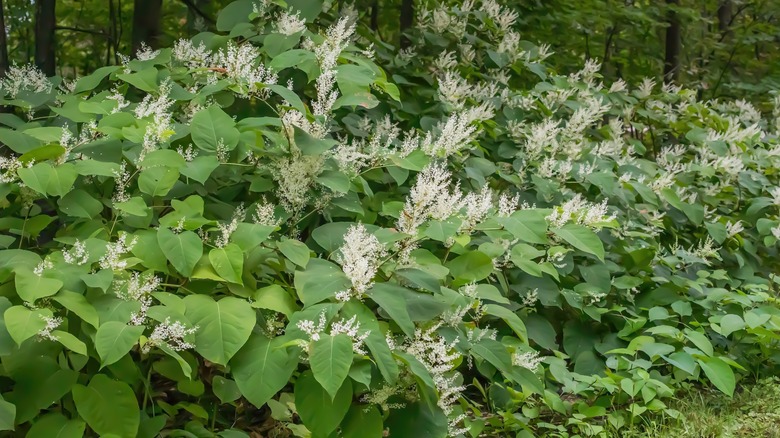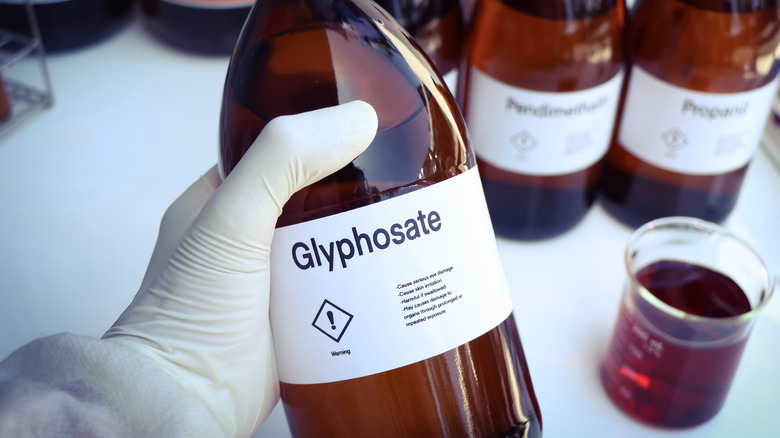Spraying Japanese Knotweed With Glyphosate? Here's What You Should Know
With its broad, green leaves and graceful white flower spikes, Japanese knotweed (Fallopia japonica or Polygonum cuspidatum) may seem like an attractive addition to your garden. It isn't. It's actually extremely invasive, spreading quickly and swamping other growth. It can be a nightmare to get rid of, and in fact, this notorious weed could tank your home's resale value.
So naturally, if you spot it in your yard, you'll want to get rid of it fast. There are problems, though. Cutting it down does no good because it regrows rapidly. Even digging up the roots (rhizomes) is unlikely to succeed, because they can sprout again from even small pieces that break off.
The solution many people reach for is a systemic herbicide, such as glyphosate, which travels through the leaves, down into the roots, thus killing the plant completely. However, glyphosate is what's called a broad-spectrum herbicide. It's non-selective, or in other words, it will kill just about anything it touches, including your lawn and the prized shrubs in your borders. To avoid wiping out everything nearby, you could use a specialist herbicide injector to paint glyphosate onto the leaves of the Japanese knotweed or introduce it directly to the stems.
Glyphosate isn't only a danger to your plants
So glyphosate can be tricky to work with around other plants, but it should be effective at tackling Japanese knotweed. Unfortunately, there may be other dangers posed by glyphosate. It is a main ingredient in one popular weedkiller you should think twice about using, and some people believe its use can increase the risk of potentially fatal cancers.
It's fair to say that even among experts, opinion is divided. Currently, it is still legal to use glyphosate in the US. However, at the time of writing, the EPA (Environmental Protection Agency) was reviewing the findings on its impact on human health. Regardless of their decision, glyphosate is banned or restricted in a growing number of US cities, large parts of Europe, plus Canada, India, and several other countries.
Does that mean Japanese knotweed is now free to romp through your garden unchecked by anything effective? Fortunately, that's not the case. There are safer store-bought weed killer alternatives to glyphosate that can be used instead. Several are OMRI-certified (Organic Materials Review Institute), meaning they are considered safe for organic food production. Care is required, though, as many are still non-selective, and as with any chemical, it's important to read the instructions carefully. The bottom line is that while they may not be quite as effective and might require more than one application, they don't have the potential hazards associated with glyphosate.

